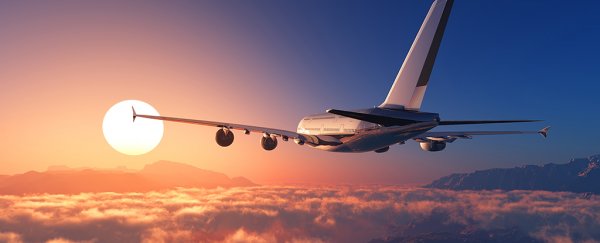If you've ever taken a long-haul flight, you'll be familiar with the sensation of jetlag - that groggy feeling you get when your body's been through too many time zones in quick succession. There are all kinds of tricks you can use to beat it - some of which make more sense than others - but how do the professionals deal with this long-distance travel?
BBC Future's Katia Moskvitch has been looking at how the men and women who fly our aeroplanes deal with the physical fatigue of skipping across multiple time zones, and there's some good advice here for anyone who plans on taking a long flight in the near future. The general rule seems to be to figure out what's best for you, and then stick to it: pilots are actually allowed to call in sick if they think they're too jetlagged to function properly.
According to Erin E Flynn-Evans, a member of NASA's fatigue countermeasures group who advises pilots on coping with jetlag, you should first take a look at which way around the world you're travelling. Use this to figure out the times you should be napping in order to get your body ready for the trip. Studies show that adjusting is easier when you're flying west rather than east.
Supplements such as synthetic melatonin can help too, Flynn-Evans says. The hormone helps to set the body's sleep cycle, and the synthetic version of it is a popular alternative to sleeping pills (although there's still some debate about which option is the safest and most effective for people to use).
If you're heading eastbound, get up as early as you can in the days before your trip. Avoid light as much as possible on the day of your flight too (dig out those shades even if you're not going somewhere sunny), as this will help to advance your internal clock. Then when you arrive, as your body continues to adjust, sleep with the curtains open for the first few days and allow in plenty of light.
When you're travelling west, you reverse the procedure: stay up late for a few days before the journey and expose yourself to bright light in the evening, then get as much light as possible on the flight. Flynn Evans says it's a balancing act between the time zone you're leaving and the one you're heading to: "It's tricky, because you have to make adjustments based on the time zone that you left, not the time zone where you are arriving."
Meanwhile, Stephen Landells, a long-haul pilot and flight safety specialist at the British Airline Pilots Association, advises plenty of water and exercise.
Landells says if he arrives somewhere before 11am, he'll take a nap for a couple of hours, otherwise he stays up until a normal (local time) bedtime. Again, it's all about experimenting with your own circadian rhythms and finding something that works. The usual tricks for waking up - coffee, music, doing something active - are just as useful when it comes to overcoming jetlag.
However, there's only so much you can do: even the experts suffer a certain amount of jetlag during trips, and some pilots do switch back to short-haul flights because their bodies are simply unable to adjust to the long-haul lifestyle. Good luck!
